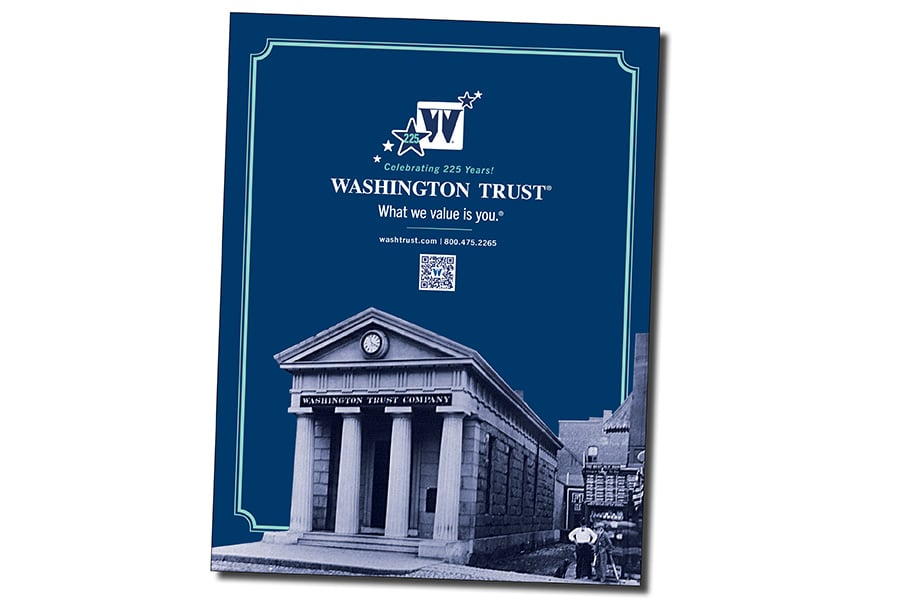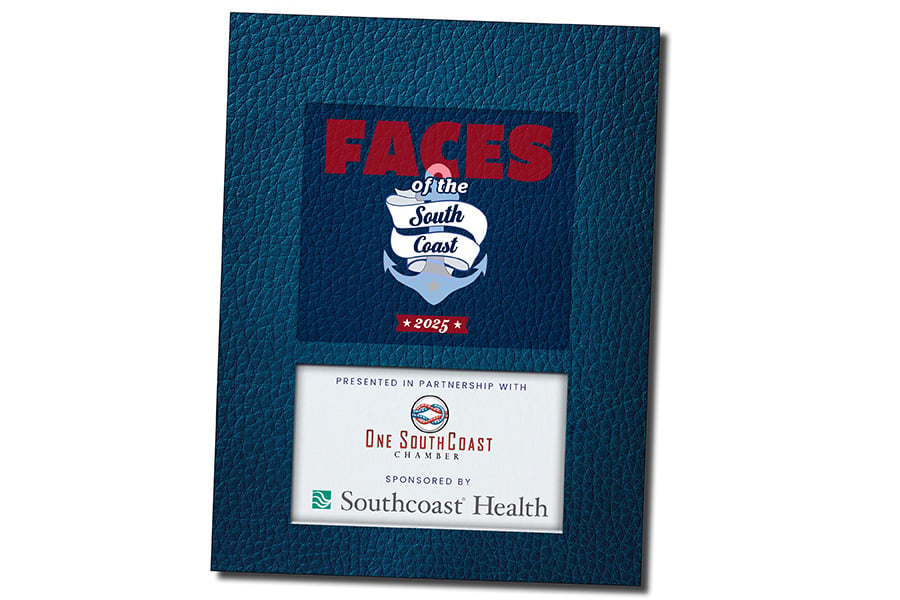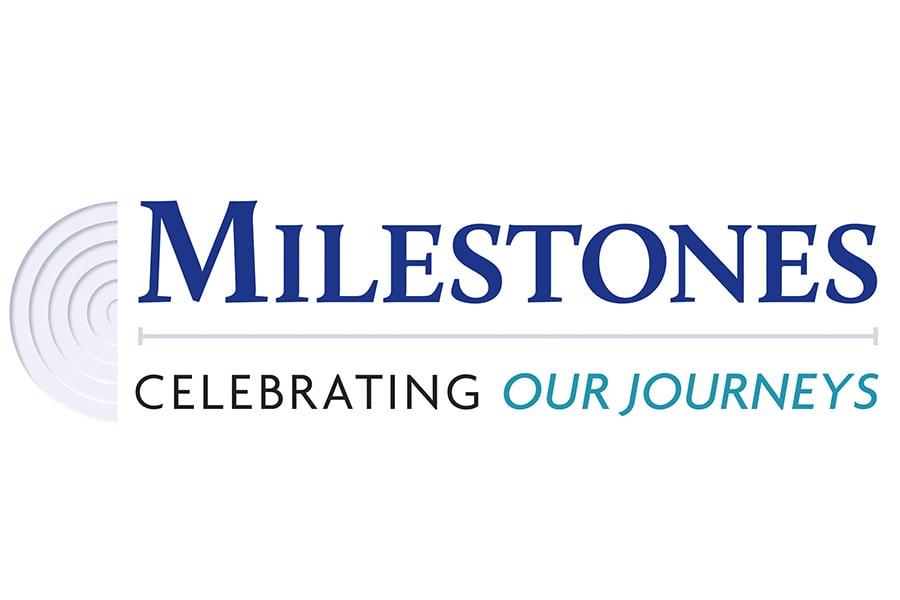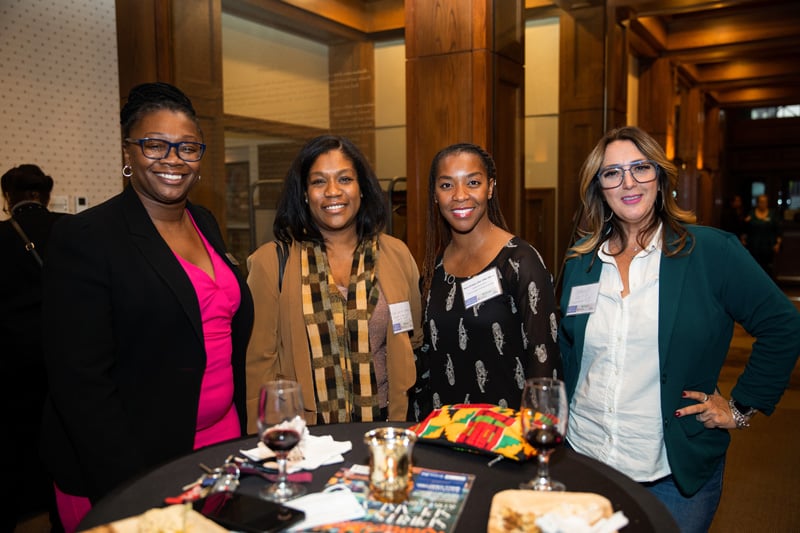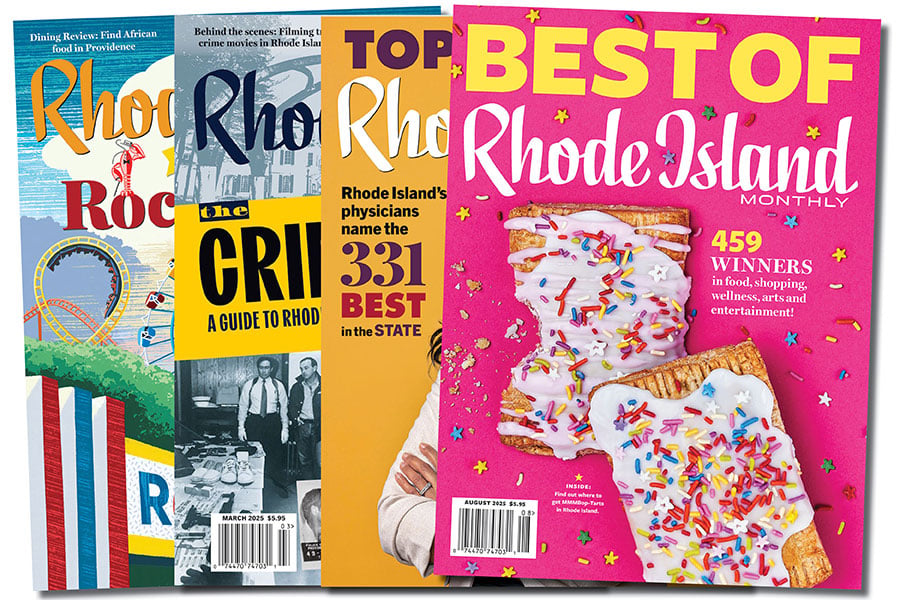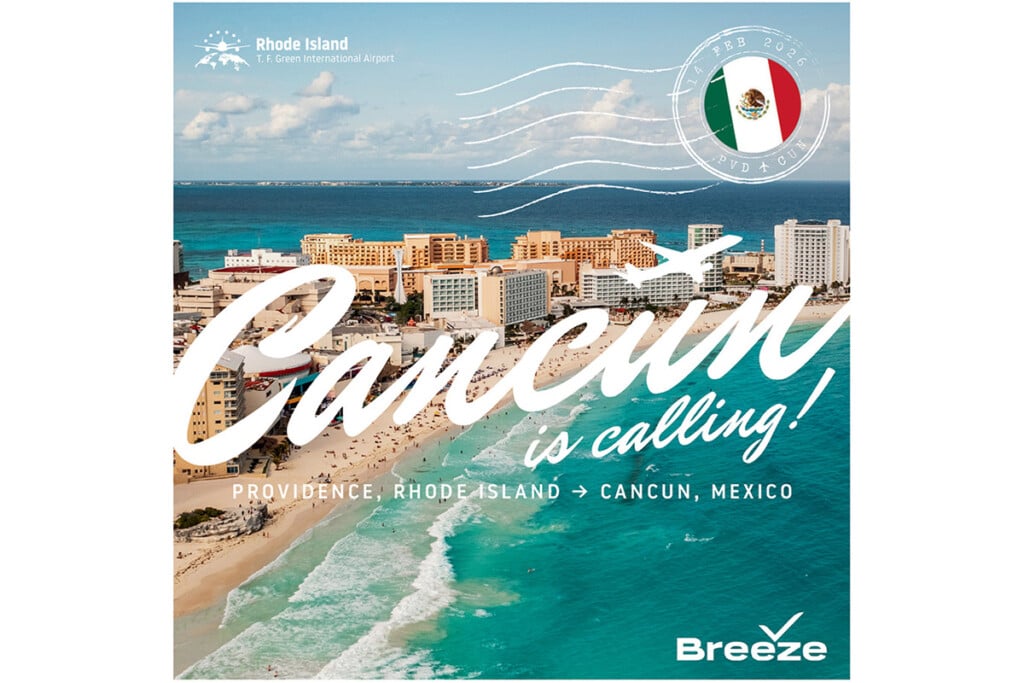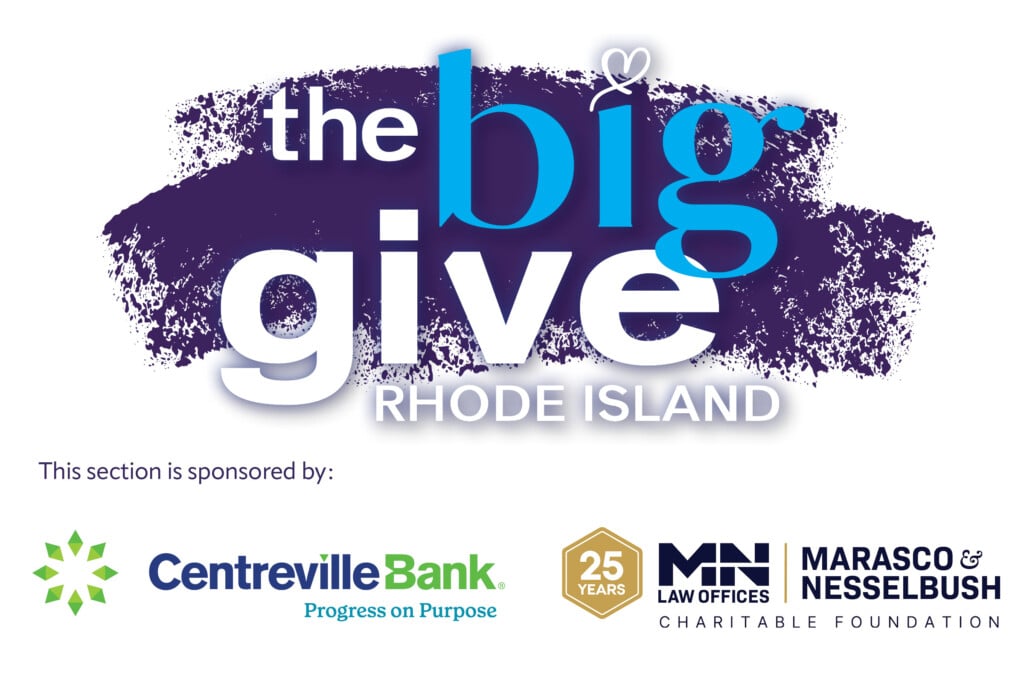Rhode Island’s Steven Feinberg is Made for the Movies
The RI Film and TV Office's executive director created films as a kid and is the reason Hollywood comes knocking on Rhode Island's door, but it turns out his own life is playing out like a movie.
STEVEN FEINBERG wants to tell you stories.
There’s the one where scared, superstitious Colonials gather in a 1600s Salem village recreated in Lincoln, wary of the witchy Sanderson sisters who later fly their broomsticks over the streets of modern-day Newport to the tune of Blondie’s “One Way or Another.”
There’s the one about a Gilded Age of power and privilege populating places like the mansions of the City by the Sea, and another about the brotherhood of crime on the hardscrabble streets of Providence.
And, of course, the ones about Wes Anderson’s Moonrise Kingdom, filmed in South County; a polar bear of the infinite variety in East Greenwich, Warwick and Wayland Square; and a king of polka dancing and his illicit business in Pawtucket, Providence, Woonsocket and Cranston.
Feinberg wants to show you those stories played out on the silver screen, the TV in your living room, the palm of your hand; stories told in movies and shows filmed in, as Feinberg often says, the “smallest state with the greatest backlot.”
Feinberg, executive director of the Rhode Island Film and Television Office for nearly twenty years, is an affable man who dresses like a cowboy because he loves horses and Westerns and is the reason movies and shows like Hocus Pocus 2, “The Gilded Age,” “Brotherhood,” Infinitely Polar Bear, The Polka King and hundreds of others have filmed in Rhode Island.
He is also responsible for getting a 30 percent transferrable film tax credit passed nineteen years ago, one of the first in the country and copied by many other states since, that lures big-budget films to the tiny Ocean State, which in turn means millions of dollars in revenue for hotels, restaurants, local actors and crew members. “The Gilded Age” executive producer David Crockett says the first season filming the HBO show created 1,200 local jobs and involved purchasing and renting goods and services from about 500 Rhode Island vendors.
All that has not gone unnoticed: MovieMaker Magazine last year named Providence one of the best places to live and work as a filmmaker in North America. Simply put, Feinberg is a big man who loves his small state with a never-say-no attitude that has put it front and center on the cinematic map.
“I like to see Rhode Island promoted to a global audience,” he says in his office, surrounded by glorious clutter including a plastic model of Lon Chaney’s werewolf and framed photos signed to him by people like Steven Spielberg and Richard Gere.
“I lived in LA for twenty-two years and would tell people very proudly I was from Rhode Island. They’d respond, ‘I love New York!’” he says shaking his head at the not-the-first-time, not-from-here people who have confused Rhode Island with New York.
That confusion is changing: In 2022 alone, the film office registered more than thirty productions, large and small, filming in Rhode Island, including Hocus Pocus 2 and “The Gilded Age.” Since the tax incentive took effect nearly twenty years ago, it has generated more than $800 million in production in the state.
“Now,” Feinberg says with a beaming smile, “now people know about Rhode Island. That’s meaningful for me.”
Little children dream big, unfettered by the constraints of maturity and exterior forces telling them what they should do, instead relying on a child’s greatest asset — imagination.
To say that Feinberg, who grew up and still lives in the Cranston enclave of Garden City, had a lot of imagination and a love of movies is like saying Rhode Island has a lot of sand on its 400 miles of coastline.
“I remember one summer when I was like seven or eight and said to my dad, ‘Let’s make a movie,’” says Feinberg, now fifty-nine, about his father, the late Ross Feinberg, a longtime Coventry school teacher and ardent film fan himself. “And he said, ‘OK … what?’”

Feinberg’s late father Ross, and mother, Lotte Feinberg, encouraged their son to make movies. Photography courtesy of Steven Feinberg.
That open-ended question turned into a film called Charlie Chaplin Meets Dr. Jekyll, a three-minute silent horror short the boy created and populated with his friends as actors, shot by his dad behind the camera and with little Stevie as Chaplin, bowler hat and all. That led to more films about Batman and James Bond, and stop-motion animated ones, showing them on garage walls in the homes of neighbors like Rose and Anthony Pagano, whose late son Jim was one of Feinberg’s best friends. Feinberg lovingly calls the
Paganos “my other parents,” and he spent hours and hours making movies with Jim as a kid.
“Oh, it was such a fun time,” laughs Jim’s mom, Rose Pagano, eighty-two. “They were the Garden City Boys, that’s what we called them. They’re still close; they still come by to check on us.”
“He was always around, always had his head on straight, always knew what he wanted to do,” says Anthony Pagano, eighty-seven. “He wrote, directed, produced, cast the films … as a little kid!”
Feinberg first used his dad’s 8mm Brownie camera, then bought his own used Sony Super 8mm camera with fade out and slow-motion functions for $50 at the former Kaplan’s in Garden City.He saved up money made mowing neighborhood lawns to pay half; his parents paid the rest.
So it’s no surprise that the little costumed boy running around the streets and homes of Garden City now lords over the state’s film office. Also no surprise is that The Fabelmans, an autobiographical movie based on the life of superstar director Steven Spielberg, who as a boy shot his own films, is one of Feinberg’s recent favorites.
He saw it with his mother, Lotte Feinberg, eighty-seven, mesmerized by the way the young boy in the movie used wet toilet paper on faces to make someone look monstrous or perforated film with a pin to mimic a laser beam or a gunshot.
“I leaned over to Mom and said, ‘That’s exactly what I used to do!’” Feinberg says. “I guess I just did it instinctively.”
In her pleasant, tidy Garden City home where Feinberg and older brother Rob grew up, their mom beams when talking about her boys. She’s also proud of the way little Stevie would take in stray animals, including a cat he named Cinnamon, which he first fed outside and gradually lured indoors. “And one night I came home from work, and Cinnamon was snuggled up in bed with Stevie,” says his mom with a laugh.
“He’s come a long way and it’s no surprise he’s doing what he does,” says Lotte, who as a young girl fled Germany with her Jewish family before Kristallnacht, the Nazi invasion in 1938. “I call him my treasure … and he’s Rhode Island’s treasure, too.”

einberg on the set of “The Gilded Age” with producers David Crockett, Holly Rymon and Gareth Neame. Photography courtesy of Steven Feinberg.
It wasn’t a straight line from Feinberg’s dream to his dream job; there was a twenty-two-year stopover in Los Angeles, making films like Fortress with Christopher Lambert in 1992, writing them,
directing, producing and most importantly, building credibility and racking up an enviable Rolodex of connections in the movie industry which serves him well back home.
“A buddy was going through a challenging divorce in 2003, so I came home to help him get through it,” Feinberg says. “I found out this job was being created, met with some people and they asked if I’d be interested.”
That kind of caring attitude comes as no surprise to Feinberg’s longtime assistant, Carol Conley, who says her boss saved her life twice, including once figuratively in 2004 when Conley, a recent cancer survivor, needed a job and he gave her one.
“And in April 2017, we were out to lunch, I felt off, had a headache and kept saying I was OK, I’ll go home and take a nap, but he wouldn’t have it and insisted on taking me to the hospital,” she says.
She was having a heart attack which caused a small stroke. Doctors said if she hadn’t come, she might not have woken up from that nap.
“He literally saved my life,” Conley says. “He’s one of the best people I know.”
Randy Rosenbaum echoes that. Rosenbaum retired last year as head of the Rhode Island State Council on the Arts, which oversees the film office. He hired Feinberg because “he was engaging, knew the film industry inside and out. He walked the walk and had some of the best references for any position I’ve ever hired for.”
Feinberg often visits film sets, particularly those of local friend/filmmakers like Rhode Island native Tommy DeNucci, who lives a stone’s throw from Feinberg in Garden City where the two often get together to watch sports on TV.
“He’s not just bringing in massive movies, he gives time and support to indie films with the same level of excitement he has for big projects,” says DeNucci, director of Vault, based on the Bonded Vault heist in Providence in the seventies, Johnny & Clyde, and a recent documentary, My Father Muhammad Ali. “He’s a loving guy, not someone who puts up walls and is hard to reach,” DeNucci says.

Feinberg with Michael Corrente and Peter Farrelly, who worked on the movie Outside Providence together. Photography courtesy of Steven Feinberg.
Feinberg is a calming force, DeNucci says.
“He’ll come to a set, he pulls me aside and says, ‘Buddy, why are you stressed out? You’re making a movie!’ He’s just this calming presence in the very stressful cesspool this industry can be.”
He is also known for his impish sense of humor. Lew Place was his assistant for eighteen years before retiring last year and remembers one time he and Feinberg were driving home from Newport with music from the 1966 TV show “Batman” blaring from a compact disc. When they stopped at the tollbooth and handed over the money, Feinberg smiled at the attendant and said, “Thank you, citizen!” in his best Adam West voice.
“I still laugh when I think about that,” Place says. “Typical Steve.”
Feinberg’s older brother Rob knows all about his kid brother’s mischievous attitude. One time he was babysitting a bratty Stevie who refused to go to bed.
“I pleaded with him, he refused, he goaded me and finally went outside — in the snow, in his underwear — and tells me ‘I’m going across the street to tell Mrs. Lipsey you’re not a good babysitter!’” Rob Feinberg says with a laugh. “He got to stay up late. He’s very persuasive.”
Feinberg is humble, but breaks character with a wide grin when he talks about landing his dream job. When he first started out in 2003, he thought, “I’ll know in six months if they will understand what I’m trying to do to bring film and TV productions to Rhode Island. If they don’t get it, I’ll move back to Los Angeles.”
Thankfully, the state welcomed Feinberg’s film finesse and embraced the new Showtime series, “Brotherhood,” which went on to win a Peabody Award and aired for three seasons.
Not only did Feinberg know what he was doing, it seems he knew it fifty years ago.
“They filmed part of The Great Gatsby in Newport in 1973, and one day we were driving to see our grandparents, and mom was reading a Providence Journal story out loud about it,” he says. “I’ll never forget, I was looking out the window from Route 37 turning on Route 95 north and said, ‘Maybe one day I’ll be in charge of the movies in Rhode Island.’”
“I never thought I’d have my hands in LA and my feet in Rhode Island,” Feinberg says. “It’s a great balance. I’m the luckiest guy, doing what I love. And I’m doing it in my favorite place in the world.”
It’s hard to find a bigger cheerleader for the state than Feinberg. Or as he likes to say, “You can love Rhode Island as much as me — but you can’t love it more than me.”
One filmmaker who admires Feinberg for that love of location is Phillip Noyce, who directed and filmed “Brotherhood” in Providence, and directed hit movies like Patriot Games, Clear and Present Danger and The Bone Collector.
“I don’t know how we contacted him, but it was one of the best calls ever made,” Noyce says. “We were setting up to film in Toronto, even had an office with our name on the door but couldn’t find a location — until we called Steve.”
“Brotherhood” was originally a Boston story based on the Bulger brothers that was scheduled for production in Toronto, but Feinberg altered the future. “They were considering shifting the story to possibly take place in Rhode Island and when they arrived, I arranged meetings with many of our elected officials all in one day,” Feinberg says. “They were blown away by the speed and access. Then they decided to make it a Rhode Island story, but they intended to only shoot in the Ocean State for three days and film the rest in Toronto.”
Feinberg met with Noyce on the State House balcony overlooking the city and said, “If you film this Rhode Island story in Toronto, you’re not going to be telling the truth. Will you help me keep the show here in Rhode Island if I can make it happen?”
Noyce agreed, and they worked in tandem to keep the show about Rhode Island and made in Rhode Island. It was the first television series filmed entirely in the Ocean State.
Feinberg moved metaphorical mountains, Noyce adds, “and we filmed there without knowing if there’d be a tax credit. It was in the works and we believed in the governor, the speaker of the house, but mostly relied on the charm of Steve.
“I learned that if you hear a Rhode Islander make a promise, you can bank on it,” Noyce says.
Feinberg’s proud of the locations available to filmmakers, from the bucolic environs of northern Rhode Island to the sandy beaches of the shore, and the ease of getting from one to the other.
“We have diverse locations in close proximity, and since time is money on a production, rush hour here is only five minutes,” he says. “In a big city, you’re a number. In Rhode Island, you’re a neighbor.”
The full force of Feinberg is on display at the made-in-RI premiere of Hocus Pocus 2. Feinberg describes the location of the premiere as, “It’s at Showcase in Warwick … you know, near where the 1149 Restaurant used to be.”
Feinberg walks in wearing his signature attire — black hat, duster, cowboy boots — and a smile. The place is buzzing, nearly all 1,200 seats filled in the thirteen-screen complex to see a movie filmed across the state with audience members cheering madly when something familiar flashes on screen, like Newport’s Eisenhower Park transformed into the faux Salem Scare Fest.
“Film contributes to the economy, but also is a source of pride,” says Governor Dan McKee, one of many local notables at the premiere. “And it attracts a lot of people to the state.”
Not to mention dollars. Mary Ann Hughes, a Feinberg fan and vice president of film and television production planning for the Walt Disney Company, says Hocus Pocus 2 hired more than 2,500 extras, employed 260 local vendors and had 250 full-time crew members on the job. In 2021 alone, due to this film and “The Gilded Age” being filmed partly in Rhode Island, around $100 million was generated in local spending, Feinberg says.
Those who know Feinberg best, like Scot Finck, longtime friend and now senior vice president of promotion at Disney Music Group, know the power of dreaming that thrives in Feinberg. They became best friends during 1981 orientation at the University of Rhode Island. Feinberg left after one year to pursue his dream in Hollywood by studying film at the UCLA summer program, and then went on to the University of Southern California film school in 1983, where there were more than 3,000 applicants and only thirty-six accepted.
“I quietly had the notion to go, but not the guts,” Finck says. “Steve had the guts. His spirit is indomitable. My heart was breaking when he left. We were brothers, really, and still are.
“Steve’s the one who showed me you could give up everything you know and live on soup if you had to. It’s why he’s built for this business, has been since day one.”
Feinberg lives alone and has never married.Came close twice, he says, engaged to beautiful women, but never pulled the marital trigger.
“I think I’m pretty generous with my job time, but I’m selfish with my own,” he says with a shrug. “I like coming here, smoking a cigar, talking to Rusty. I don’t want to hear, ‘When are you coming home?’ I like my freedom.”
‘Here’ means the stables at Warwick’s Goddard Park, where he spends a lot of off time, and ‘Rusty’ is his horse. He had a blanket with horses on it as a kid, which still adorns his old bed at his childhood home, and jokes he got his affinity for horses through osmosis just lying under that blanket.
His first horse was Cruiz, and Feinberg rode him often, sharing cups of Del’s lemonade with the gentle beast, or just sitting with him at the stable. But Cruiz was severely injured in 2021 after being kicked by another horse, and after eleven years of companionship with Feinberg had to be put down. It broke his heart.
“I really couldn’t do anything for months,” Feinberg says. “I was devastated. Worst day of my life.”
But then he got Rusty, saving him from the glue factory in Pennsylvania. Rusty has Sweeney Shoulder, atrophy from nerve damage caused from a previous accident, so Feinberg doesn’t ride him, but walks him casually through the trails of Goddard or just sits outside the stables and reads scripts and smokes cigars as Rusty happily nibbles grass near his friend, occasionally nuzzling his pal for a sloppy horse kiss. “Rusty gave me my heart back,” Feinberg says.
Feinberg is a man with, it would seem, limitless amounts of heart, a heart painfully displayed when driving around his old neighborhood for a stop at a memorial for his childhood friend and film buddy, firefighter Jim Pagano. The memorial is located near the back of the schoolyard field at Garden City School, where they played as children. There is a bench and an American flag. Here, he laughs recalling how Pagano got tagged with the nickname of Tin Man. “They were touching up part of a fire engine [with silver paint], and Jimmy fell off a ladder,” Feinberg roars. “He got covered in silver paint!” His fellow firefighters branded him with the moniker.
Feinberg was a year older than Pagano, and calls him “my kid brother,” warming to the memories of his best friend, which included screening his childhood movies on the Pagano’s garage wall.
“Jim would do whatever I needed,” Feinberg says. “He played an old lady in one film, a robber in another, the villain to my James Bond once. Always willing to jump in.”
They grew up in what Feinberg calls “our ‘Wonder Years’ neighborhood,” playing and watching sports, going to the movies, making the costumed Garden City rounds at Halloween. Pagano visited Feinberg in LA. And when Feinberg’s movie, Fortress, screened at Showcase Cinemas in Warwick, his figurative little brother was right there.
In 2008, Pagano was hosting a birthday party for one of his kids when a ball they were playing with bounced into a cranky neighbor’s yard. The neighbor swore at the kids and kept the ball. Pagano knocked on the door to talk it over. The man came out with a gun, a fight ensued, shots were fired. Pagano lay dead in the streets of this otherwise idyllic neighborhood.
The media crush following the murder and trial was too much for the Pagano family. So Feinberg and other Garden City Boys stood on the family stoop fielding questions from reporters.
Sitting in Feinberg’s dirty black Z28 at the memorial, he is silent for a long time until he says, “I was supposed to be at that party … but couldn’t make it.
“I would’ve been there, I would’ve gone to that door with Jim,” he says, eyes fixed on the memorial and far into the past. “Or instead of Jim … I’d probably be dead, too. But I’d have been there — the way Jimmy was always there for me and everyone else.”
He shakes his head slowly and drives off down the familiar street into happier memories, like a sad movie taking a turn for the better.
At lunch at Newport Creamery in garden City, he chats with people he knows and people he just met. He unfailingly turns every conversation into questions about how they’re doing, what’s happening in their lives, as if every encounter is a scene in a feel-good film.
He turns sixty this fall but doesn’t see himself leaving the job anytime soon — if ever. He has too much left to do, including building a film studio to bring even more movies to his state.
“We’ll have equipment, offices, we can build sets, exteriors for movies,” he says, eyes beaming like klieg lights bathing the skies above a Hollywood premiere. “I want shovels in the ground in a year, maybe two.”
His dream isn’t about him, it’s more about the place he will likely forever call home. One late afternoon, leaving his office across from the State House, he stops and points to its dome.
“Every day I come in, and every day when I leave, I look at that,” he says of the Independent Man, gleaming gold in the day’s waning rays. “I work for that ideal, the independent man. Not the people in that building. But the people of this state.”
If that sounds like Jimmy Stewart’s Mr. Smith Goes to Washington, written as Mr. Feinberg Goes to Hollywood, going west to pursue a dream and coming home with a piece of Tinseltown in his pocket to spread around like the Pied Piper of movies, he’s earned that right.
He wedges into the tiny driver’s seat of his car with the vanity plate “RI Film” and can’t help but think that could be the title of his life’s movie. Feinberg hollers into the Providence sky, “I’m the luckiest guy in the world!”








